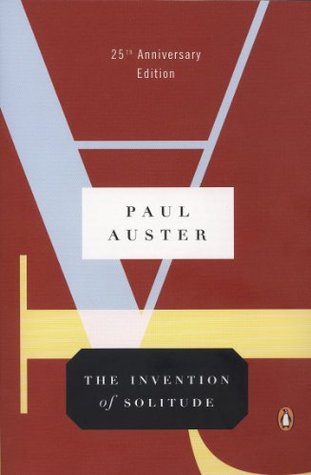More on this book
Community
Kindle Notes & Highlights
During the war, M.’s father had hidden out from the Nazis for several months in a Paris chambre de bonne. Eventually, he managed to escape, made his way to America, and began a new life. Years passed, more than twenty years. M. had been born, had grown up, and now was going off to study in Paris. Once there he spent several difficult weeks looking for a place to live. Just when he was about to give up in despair, he found a small chambre de bonne. Immediately upon moving in, he wrote a letter to his father to tell him the good news. A week or so later he received a reply: your address, wrote
...more
Auster’s point of view is different: he recognizes his connection to a family, a tradition, a culture, but he also realizes that this is a highly problematic link. In short, to paraphrase the famous verse of Rene Char, the legacy is ambiguous: the will is missing. Since nothing has a priori meaning—this, the very curse of modernity—the self, like solitude and tradition, must literally be invented and re-created.
Unlike this orgy of egotism, Auster’s The Invention of Solitude is a story whose strength lies in its very simplicity. Through this apparent banality the reader finds himself, and narrative regains its true identity. It is once again a homeland open to all without distinction, a place of welcome: “I don’t feel that I was telling the story of my life so much as using myself to explore certain questions that are common to us all,” Auster says in an interview. Auster’s hero is not someone who prefers himself, to repeat Brecht’s definition of the bourgeois, but someone who doubts and communicates
...more
Uncertainty eats into the core of our being; our heart is empty or cluttered with so much static that it seems to hold nothing. This work clearly also expresses the genealogical passion of the uprooted, and it is not insignificant that Auster is an American entirely oriented toward Europe. But this proximity is misleading. A reading of Auster produces a double sensation of familiarity and disorientation, for Auster, deeply anchored in the New World, does not write European books in America; he enriches the American novel with European themes.
His literature is like a brief burst of sunshine between a hidden and an exposed mystery, a glimmer between two shades of darkness.
And then, suddenly, it happens there is death.
There is nothing more terrible, I learned, than having to face the objects of a dead man. Things are inert: they have meaning only in function of the life that makes use of them. When that life ends, the things change, even though they remain the same. They are there and yet not there: tangible ghosts, condemned to survive in a world they no longer belong to. What is one to think, for example, of a closetful of clothes waiting silently to be worn again by a man who will not be coming back to open the door?
During the war, M.’s father had hidden out from the Nazis for several months in a Paris chambre de bonne. Eventually, he managed to escape, made his way to America, and began a new life. Years passed, more than twenty years. M. had been born, had grown up, and was now going off to study in Paris. Once there, he spent several difficult weeks looking for a place to live. Just when he was about to give up in despair, he found a small chambre de bonne. Immediately upon moving in, he wrote a letter to his father to tell him the good news. A week or so later he received a reply: your address, wrote
...more
For it is his belief that if there is a voice of truth—assuming there is such a thing as truth, and assuming this truth can speak—it comes from the mouth of a woman. It is also true that memory sometimes comes to him as a voice. It is a voice that speaks inside him, and it is not necessarily his own. It speaks to him in the way a voice might tell stories to a child, and yet at times this voice makes fun of him, or calls him to attention, or curses him in no uncertain terms. At times it willfully distorts the story it is telling him, changing facts to suit its whims, catering to the interests
...more
“What a strange thing to happen to a little boy.” Yes, it is possible that we do not grow up, that even as we grow old, we remain the children we always were. We remember ourselves as we were then, and we feel ourselves to be the same. We made ourselves into what we are now then, and we remain what we were, in spite of the years. We do not change for ourselves. Time makes us grow old, but we do not change.
use this new synthesis to draw further conclusions, refine perceptions, think more cogently about the book as a whole. And then, once the work is finished, the last page read and the book closed, interpretations begin: psychological, historical, sociological, structural, philological, religious, sexual, philosophical, either singly or in various combinations, depending on your bent.
A young man, twenty years later, winds up living in the same room where his father faced the horror of solitude. A man encounters his old love on a street in a foreign city. It means only what it is. Nothing more, nothing less. Then he writes: to enter this room is to vanish in a place where past and present meet. And then he writes: as in the phrase: “he wrote The Book of Memory in this room.” The invention of solitude.
DN liked this


